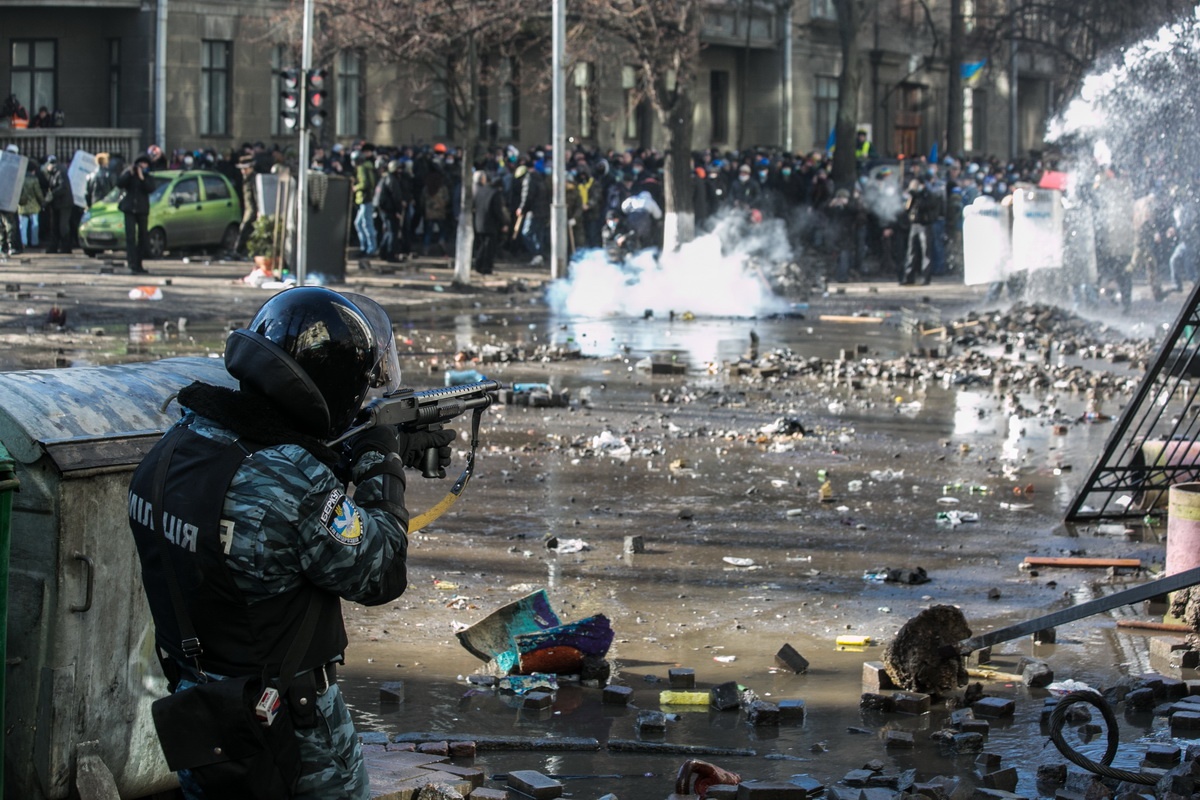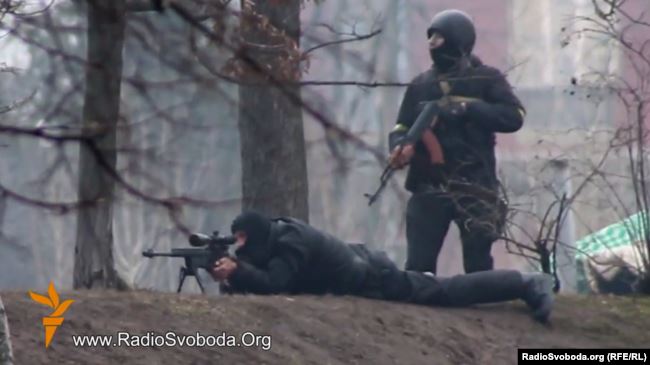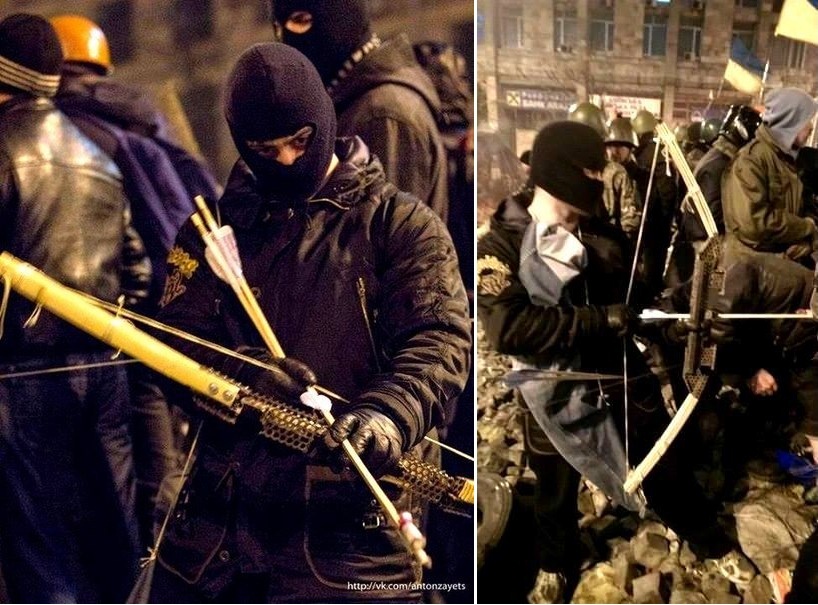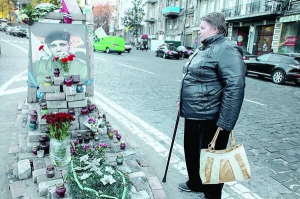Every year Ukrainian media, including Euromaidan Press, publish articles starting with the same headline “There is no progress in Euromaidan killings investigation.” This year, not only the situation with the investigation is up in the air, but a significant pushback has occurred.
Read also: 5 years after, probe into Euromaidan killings still not finished, justice nowhere near
On the eve of the sixth anniversary of the beginning of the revolution, the State Bureau of Investigation (SBI) broke bad news. SBI head Roman Truba informed that after 20 November, the investigations of the Euromaidan cases might stop because of transferring the investigative function from the Prosecutor General’s Office to the SBI.
“There are five thousand bundles in the Maidan cases which will be handed over to new investigators. Five years of the investigations which had to be “rewound” and explored from the very beginning. For some time, it would suspend the probe,” Truba said.
The SBI head elaborated that there is a dramatic lack of investigators in his institution and the load is about 100 proceedings per investigator.
After the revolution, the Department of Special Investigations (DSI) was established in the Prosecutor General’s Office (GPU) as a central body for investigating all the crimes committed during the Euromaidan protests. The department’s main task was to explore the circumstances of usurping power by fugitive president Viktor Yanukovych, and other crimes related to his ruling, first and foremost, the 18-20 February 2014 mass killings.
The Department gets disbanded due to the reform of the prosecutor’s offices launched in fall 2019.
Read also: Ukraine launches large-scale reform for its post-Soviet prosecutor’s offices system
The Maidan massacre probe appears to be falling victim to the ongoing public prosecution reform, though the investigation by far was not running smoothly even before the reform kicked off.

Horbatiuk vs Riaboshapka
Recently, former DSI head Serhiy Horbatiuk voiced the figures: in the course of the proceedings, the investigators notified 448 people of charges against them, submitted 298 indictments to courts, courts delivered 57 verdicts. Nevertheless, the government repeatedly blasted the Department for slow progress in investigations. For its part, the DSI was blaming the government for that.
In February 2019, Euromaidan Press asked Horbatiuk to list what obstructs the investigation of Maidan cases the most during the years of investigation. He said, there was a number of issues:
- Lack of support and interest in the investigation and obstacles created by the heads of the Prosecutor General’s Office, Ministry of Internal Affairs, and Security Service, as well as the law enforcement bodies involved in the process;
- Unreformed courts. Horbatiuk says that investigative judges made many potentially illegal decisions which harmed the investigation. Also, judges delayed the judicial proceedings, made decisions to release suspects in killings from custody and returned indictments. The court hearings also have been delayed;
- The legislative changes on trials in absentia complicated the investigative process: the procedures which are impossible to implement properly make it possible for any criminal proceeding to end with an acquittal.
- State and expert institutions obstructed and improperly conducted expert examinations during the investigative process, which led to wrong conclusions or ineffectual examinations and made investigators consider incorrect versions and redo the examinations, delaying the investigation even more.
Also, Horbatiuk added that the Ukrainian legislature had to be amended in compliance with European conventions and practices of European courts in terms of suspect’s right to defense. According to him, current legislation allowed those sentenced to exploit the legislative lacunas as a legal loophole and overturn the decisions of Ukrainian courts by appealing to international courts.
Read more: 5 years after, probe into Euromaidan killings still not finished, justice nowhere near
As mentioned above, the public prosecution reform ditched the Department of Special Investigations because prosecutor’s offices now get deprived of the investigative functions starting from 20 November. Other significant change is holding re-attestation for the prosecutors. If a prosecutor doesn’t pass the test or doesn’t file the documents to apply for the attestation or submits the forms filled in improperly, then he or she is to be dismissed.
While the civil society perceives the reform as positive in general, the developments around the probe into the Euromaidan deaths is accompanied by scandals and disputes. For example, DSI head Horbatiuk himself lost his post due to not filing the required paperwork, while he stated that the real reason for his dismissal was his resistance to the ongoing whitewashing of former officials engaged in the Euromaidan crimes – in particular, Viktor Yanukovych. According to Horbatiuk, incumbent Prosecutor General Ruslan Riaboshapka believes that the organized crime group led by Yanukovych didn’t exist despite the overwhelming evidence base collected by Horbatiuk’s department.
As for the attestation process itself, Horbatiuk thinks that it contravenes the law violating at least 50 constitutional norms. He sued the Prosecutor General’s Office for his dismissal, demanding to reinstate him as head of the DSI in the Prosecutor General’s Office or to appoint him to an equivalent position of a public prosecutor.
In his turn, Riaboshapka accused Horbatiuk and his department of being inefficient.
Civil activists were discontented by the row between the two prosecutors.
“It’s bitter and painful. The ex-head of the Department of Special Investigations of Maidan cases who was absolutely trusted by the Family of Heavenly Hundred NGO and the Advocacy Advisory Panel did not get along with the Prosecutor General Ruslan Riaboshapka and his deputies Vitaliy Kasko and Viktor Chumak who also have huge trust from society. Serhiy Horbatiuk, Oleksiy Donskyi, and other employees of the Department withstood the exhausting perennial fight against the previous heads of the Prosecutor General Office and are dismissed now when it seemed that there will be no obstacles for the effective investigation [of the Euromaidan cases]. What is happening now is a time bomb for the reform of the prosecutor’s offices. Of course, the quality of the investigation of Euromaidan cases will be adversely affected. The colossal volume of materials accumulated by the investigation will require long studying before moving forward. The problem must be solved. Immediately,” Larysa Holnyk, whistleblower judge said.

President vs Heavenly Hundred families
Meanwhile, anticipating that the investigation into the crimes during the Revolution of Dignity is falling into a black hole with transferring the cases to the SBI, activists and families of those killed in February 2014 rallied near the President’s Office building on 8 and 14 November. The protesters demanded to create a special investigative department for these cases as part of the SBI, and to amend the SBI-related legislation, allowing the prosecutors who handled the cases as investigators of the Prosecutor General’s Office to be appointed in the SBI under a simplified procedure and continue their work in the new body.
However, the protests weren’t helpful. On 15 November, when the amendment should have been considered in the parliament, the MPs appeared to be too busy and did not find time for that.
“So the Verkhovna Rada [Ukrainian Parliament] did not bring up for vote the norm on securing the investigations into the Maidan cases [in the SBI] after 20 November… “They did not have time.” The next attempt is set for 3 December. It means that on 20 November we do have the ‘black hole’,” Euheniya Zakrevska, lawyer for the families of the Heavenly Hundred, wrote in a Facebook post.
The Advocacy Advisory Panel, an initiative which unites the lawyers defending the interests of Maidan victims released the statement demanding President Zelenskyy to convene an extraordinary parliamentary session to review the amendment that “would allow to keep the investigation into the Maidan cases [intact].”
“We demand not to hand over the proceedings in the Maidan cases to the SBI until the amendment is adopted, the Maidan [cases] department is created in the SBI, and the investigators are transferred there from the GPU,” the statement reads.
Roman Maselko, one of the lawyers for the Heavenly Hundred told NV that there is a high probability that the SBI is going to stall the investigations because the institution is associated with Andriy Portnov, former deputy head of Yanukovych’s administration.
He added that the case is so complex and voluminous that even if it is treated properly, the investigation process may last a few more years.
Meanwhile, on 18 November, SBI head Truba informed that the department for the investigation of the Maidan crimes was established in the SBI.
“We selected the best professional investigators which would effectively work on the ‘Maidan cases’ further on. As soon as the Prosecutor General’s Office completes all the procedural actions, the investigators will commence work,” he said.
He reminded that the PG Office should complete the pre-trial investigations in criminal proceedings and transfer the cases to the SBI within three months.
Update 18:45, 20 November 2019
Today at a press briefing in Kyiv, Prosecutor General Riaboshapka and SBI head Truba assured that the investigation of the Maidan cases will not be suspended. The investigators of the Prosecutor General’s Office keep the procedural guidance of the probe while the investigation itself would be conducted by 25 SBI investigators, according to the SBI head. Meanwhile, the Prosecutor General stressed that it is “important” that “Parliament adopted the changes to the law on the SBI as soon as possible, in particular, the amendment which stipulates the possibility for the investigators who conduct the probes related to the Maidan cases now to get transferred to the SBI.”
Read also:
- Ukraine’s flawed judicial reform is stalling justice for slain Euromaidaners
- Poroshenko’s judicial reform is over, long live Zelenskyy’s judicial reform
- Five years after Euromaidan, 227 judges who persecuted activists keep their seats
- Five years after Berkut beating, Euromaidan activist recalls every detail
- Activist behind Novorossiya’s defeat in Kryvyi Rih: I am hit with five lawsuits for my civic stance
- Oleksandra Dvoretska: We IDPs have a motivation – to return Crimea and Donbas
- Larysa Artiugina: Ukraine’s unique volunteer movement most powerful weapon we have to win this war
- Roman Maselko: My promise to slain Euromaidan activists is to bring bad judges to justice
- Where is the Yanukovych regime five years after the Euromaidan revolution








